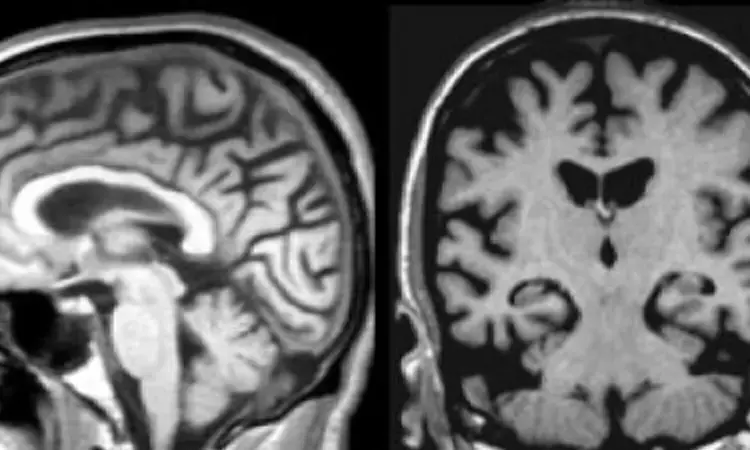- Home
- Medical news & Guidelines
- Anesthesiology
- Cardiology and CTVS
- Critical Care
- Dentistry
- Dermatology
- Diabetes and Endocrinology
- ENT
- Gastroenterology
- Medicine
- Nephrology
- Neurology
- Obstretics-Gynaecology
- Oncology
- Ophthalmology
- Orthopaedics
- Pediatrics-Neonatology
- Psychiatry
- Pulmonology
- Radiology
- Surgery
- Urology
- Laboratory Medicine
- Diet
- Nursing
- Paramedical
- Physiotherapy
- Health news
- Fact Check
- Bone Health Fact Check
- Brain Health Fact Check
- Cancer Related Fact Check
- Child Care Fact Check
- Dental and oral health fact check
- Diabetes and metabolic health fact check
- Diet and Nutrition Fact Check
- Eye and ENT Care Fact Check
- Fitness fact check
- Gut health fact check
- Heart health fact check
- Kidney health fact check
- Medical education fact check
- Men's health fact check
- Respiratory fact check
- Skin and hair care fact check
- Vaccine and Immunization fact check
- Women's health fact check
- AYUSH
- State News
- Andaman and Nicobar Islands
- Andhra Pradesh
- Arunachal Pradesh
- Assam
- Bihar
- Chandigarh
- Chattisgarh
- Dadra and Nagar Haveli
- Daman and Diu
- Delhi
- Goa
- Gujarat
- Haryana
- Himachal Pradesh
- Jammu & Kashmir
- Jharkhand
- Karnataka
- Kerala
- Ladakh
- Lakshadweep
- Madhya Pradesh
- Maharashtra
- Manipur
- Meghalaya
- Mizoram
- Nagaland
- Odisha
- Puducherry
- Punjab
- Rajasthan
- Sikkim
- Tamil Nadu
- Telangana
- Tripura
- Uttar Pradesh
- Uttrakhand
- West Bengal
- Medical Education
- Industry
Baseline MRI atrophy may predict 2-year cognitive outcomes in early-onset Alzheimer's disease: Study

Spain: A recent study has reported that baseline MRI findings can predict two-year cognitive outcomes in patients with early-onset Alzheimer's disease (EOAD). This could improve how Alzheimer's disease is treated. The study was published in the Journal of Neurology on 19 October 2021.
According to the study, baseline hemispheric/regional CTh (cortical thickness), ventricular and amygdalar volume, but not the hippocampus, predict two-year cognitive outcomes in EOAD.
Cognitive status in AD is predicted by MRI atrophy. However, this relationship has not been investigated in patients with early-onset AD (EOAD, < 65 years) with a biomarker-based diagnosis. Considering this, Albert Lladó, Centro de Investigación Biomédica en Red de Enfermedades Neurodegenerativas, CIBERNED, Spain, and colleagues explored whether there was any association between baseline MRI exam findings in early-onset Alzheimer's patients that indicate global atrophy and cognitive outcomes over a two-year period.
The study included forty-eight EOAD (MMSE ≥ 15; A + T + N +) and forty-two age-matched healthy controls (HC; A − T − N −) from a prospective cohort. They underwent full neuropsychological assessment, 3T-MRI scan, and lumbar puncture at baseline. The cognitive assessment was repeated annually. Linear mixed models were used to investigate whether baseline cortical thickness (CTh) or subcortical volume predicts two-year cognitive outcomes in the EOAD group.
Key findings include:
- In EOAD, hemispheric CTh and ventricular volume at baseline were associated with global cognition, language and attentional/executive functioning 2 years later.
- Regional CTh was related to most cognitive outcomes, except verbal/visual memory subtests.
- Amygdalar volume was associated with the letter fluency test.
- Hippocampal volume did not show significant associations.
The researchers concluded, "Baseline hemispheric/regional CTh, ventricular and amygdalar volume, but not the hippocampus, predict two-year cognitive outcomes in EOAD."
Reference:
Contador, J., Pérez-Millan, A., Guillen, N. et al. Baseline MRI atrophy predicts 2-year cognitive outcomes in early-onset Alzheimer's disease. J Neurol (2021). https://doi.org/10.1007/s00415-021-10851-9
Dr Kamal Kant Kohli-MBBS, DTCD- a chest specialist with more than 30 years of practice and a flair for writing clinical articles, Dr Kamal Kant Kohli joined Medical Dialogues as a Chief Editor of Medical News. Besides writing articles, as an editor, he proofreads and verifies all the medical content published on Medical Dialogues including those coming from journals, studies,medical conferences,guidelines etc. Email: drkohli@medicaldialogues.in. Contact no. 011-43720751


